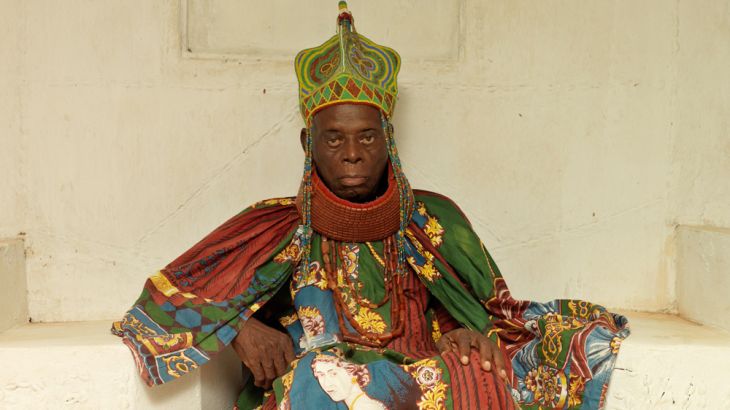
George Osodi on the Kings of Nigeria and Boko Haram
A glimpse into Nigeria and how the work of a celebrated Nigerian photographer changed his life and those around him.
Ten years ago, in November 2006, Al Jazeera English was launched. To mark that anniversary, we’ve created REWIND, which updates some of the channel’s most memorable and award-winning documentaries of the past decade. We find out what happened to some of the characters in those films and ask how their stories have developed in the years since our cameras left.
In 2013, filmmaker Katharina von Schroeder went to Nigeria for an Artscape series called The New African Photography.
Keep reading
list of 4 itemsInside the pressures facing Quebec’s billion-dollar maple syrup industry
‘Accepted in both [worlds]’: Indonesia’s Chinese Muslims prepare for Eid
Photos: Mexico, US, Canada mesmerised by rare total solar eclipse
|
|
| Renowned Nigerian photographer George Osodi discusses his latest projects |
The central character of her film, photographer George Osodi, was in the middle of completing a stunning collection of images documenting the devastating effects of oil spills in Nigeria’s Delta region.
The film followed Osodi as he moved on to photograph Nigeria’s traditional monarchs – offering a unique insight into the diverse culture, history and traditions of his country. Although there is very little known about the many different monarchies in Nigeria, they are considered to be a major part of Nigerian history.
Back then, Osodi said: “[There are] frequent clashes among different ethnic groups,” says Osodi. “Lots of people have lost trust in their identity. I felt it was important that we see this diverse culture as a point of unity instead of seeing it as something that should divide us as a nation.”
Now, in 2016, Osodi tells REWIND how his life and work have moved on.
He talks about his latest projects, including a series of photographs looking at the victims of Boko Haram.
“The Boko Haram phenomenon is another sad story from Nigeria. There’s this class of people who people don’t talk much about. I call them the victims of Boko Haram. Many of them are kids whose parents have been killed in the cause of militancy and conflict. We have kids who have lost their parents, some died in bombings, some died while refusing to become members of Boko Haram,” says Osodi.
“So I travelled down to the north east at various times, trying to explore and see what happens to these kids, who is taking care of them. For me it’s to create a strong visual awareness that will probably influence people in authority to make a change. I think that’s my responsibility.”
![George Osodi looks at the victims of Boko Haram, profiling children who have lost their parents because of conflict [George Osodi]](/wp-content/uploads/2016/10/def4078a18034df2a09ba12d1b5d659a_18.jpeg)